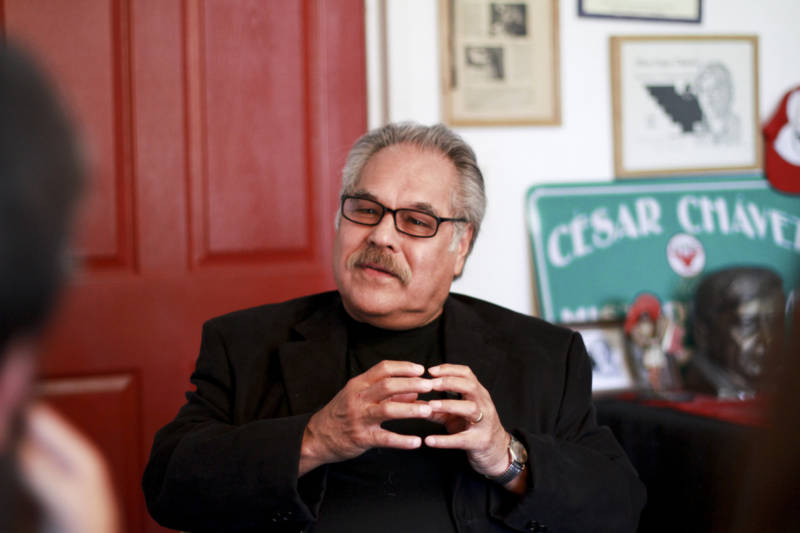One of your most famous plays is "Zoot Suit," the first show by a Chicano playwright to make it to Broadway, which of course turned into a major movie. Now you’re bringing it back to the Mark Taper Forum in Los Angeles, 38 years after it premiered there. How do you think about "Zoot Suit" differently now?
"Zoot Suit" is like a grandfather to a lot of Latino plays. It proved that we were box office, because the play ran for a year in Los Angeles. It played to almost a half a million people. That's a phenomenal record anywhere. It brought thousands and thousands of Latinos into the theater world who had never seen theater before. I think all the regional theater companies became aware that there's a Latino audience out there and they're willing to buy tickets if the material suits them.
One of your newest shows, "Valley of the Heart," tells the story of the son of a Mexican farmworker who falls in love with a Japanese-American farmer’s daughter during the anti-Japanese hysteria of World War II. Their eyes meet as they pick broccoli in Cupertino, in today’s Silicon Valley. What drew you to that story?
Like a lot of writers I draw from the incidents of my life. My dad took over the ranch of his Japanese employer back in 1941, in the Delano area. I thought my dad owned the place. It wasn't until after the war that I learned it was not my dad's ranch. It had belonged to a Japanese-American farmer, and he and his family were taken away and put in a concentration camp. I was 6 years old. And that shocked me, because I understood the war, but these were Americans!
And then in 1947, when I was 7, I met a friend who I thought was Filipino; his name was Esteban Cornejo. But it turned out his father was Mexican, and his mother was Japanese-American. They lived in this little shack, a wooden frame with cardboard for wallpaper. The thing I'll never forget is that the mother could cook both Japanese food and Mexican food like an expert. My first taste of Japanese food was at their table. And so I never forgot them, and I never forgot my friend Esteban.
You were recently named a member of the Academy of Motion Picture Arts and Sciences, which has been criticized for its lack of diversity. What will you be looking for when you’re judging the Oscars?
It's not just a question of the actors, although everybody thinks of the actors. No, no. You need writers, screenwriters, producers. You need people in executive positions that can give you the green light and make the thing happen. And if they're not Latinos at least they should be Latino-conscious. And that's always a struggle in Hollywood because it's a question of educating people at every level.
We have a ways to go. But despite the ugliness, despite the violence, despite the contradictions of the human race, I still believe in people. We now need to keep moving forward, and the arts make that possible. The arts make us more empathetic and more understanding. The way to the human mind is through the heart. And so as a playwright one of the things that I strive for is to touch the heart of the audience.
You just met President Obama. What did you say to him?
I told him that I did some commercials for him in Salinas in Spanish when he was running the first time in the primary, because I've been supporting him all these years. I told him I was proud of him, and that we're going to miss him. To me, being in the Obama White House was like a breath of fresh air. To see him so eloquent and so alive is an answer to all those years of oppression. But that oppression still exists in agriculture. Farmworkers are still wage slaves. And until we change our values, until we stop looking down our noses at the people that grow the food that we all consume, the world will not change.
This interview has been edited for length and clarity.
